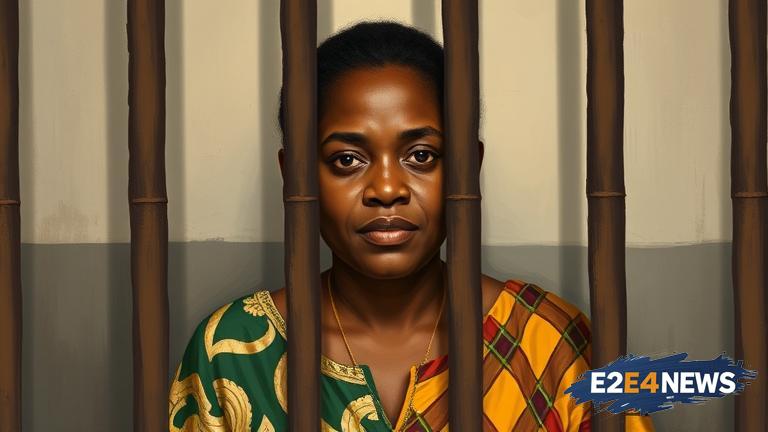In a shocking turn of events, a Ghanaian educationist has been handed a 48-year prison sentence for defiling a minor. The court’s decision has sent shockwaves throughout the country, with many calling for stricter laws and harsher punishments for those found guilty of child abuse. The educationist, whose name has not been disclosed, was found guilty of defiling a minor and was sentenced to 48 years in prison. The incident has sparked widespread outrage, with many Ghanaians taking to social media to express their disgust and disappointment. The case has also raised concerns about the safety and well-being of children in Ghana, particularly in schools and other educational institutions. Many have called for increased vigilance and stricter measures to prevent such incidents from occurring in the future. The Ghanaian government has also been urged to take a stronger stance against child abuse and to implement more effective measures to protect children from exploitation and abuse. The sentence has been hailed as a victory for justice, with many praising the court for its decision. However, others have expressed concerns that the sentence may not be enough to deter others from committing similar crimes. The incident has also highlighted the need for greater awareness and education about child abuse and its effects on victims. Many organizations and advocacy groups have called for increased funding and support for initiatives aimed at preventing child abuse and providing support to victims. The case has also sparked a national conversation about the need for stricter laws and harsher punishments for those found guilty of child abuse. In recent years, Ghana has seen a significant increase in cases of child abuse, with many going unreported. The government has been urged to take a more proactive approach to addressing the issue, including increasing funding for initiatives aimed at preventing child abuse and providing support to victims. The sentence has been welcomed by many as a step in the right direction, but others have expressed concerns that more needs to be done to address the root causes of child abuse. The incident has also highlighted the need for greater accountability and transparency in schools and other educational institutions. Many have called for increased scrutiny of schools and other institutions to ensure that they are providing a safe and supportive environment for children. The case has also sparked a debate about the role of education in preventing child abuse, with many arguing that education is key to preventing such incidents from occurring. Others have argued that more needs to be done to address the social and economic factors that contribute to child abuse. The sentence has been hailed as a victory for the victim and their family, who have been praised for their bravery and resilience. The case has also highlighted the need for greater support and protection for victims of child abuse, including access to counseling and other forms of support. In conclusion, the sentence has sent a strong message that child abuse will not be tolerated in Ghana, and that those found guilty will face severe consequences. However, more needs to be done to address the root causes of child abuse and to prevent such incidents from occurring in the future.
